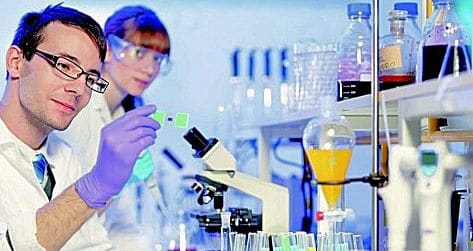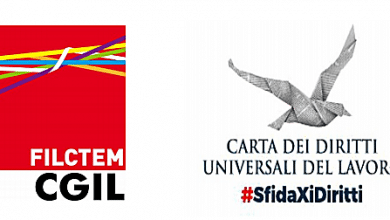
Program to scout for new brains, the way of collaboration with the academy to fuel progress
Posted on: 22/10/2015 – adnkronos
 From molecule hunters to brain hunters. In universities. Industry comes out of its laboratories and explores new paths to fuel research. As? Going to find the 'Archimedes of medicines' active in the academic world. This is the mission of the Dpac (Discovery Partnership with Academia) program, launched by the British Gsk. “Over the years, our role has changed,” explains the medical and scientific director of the pharmaceutical company in Italy, Giuseppe Recchia. “From researchers of compounds we have become researchers of researchers. In other words, we make our know-how and our ability to develop innovative therapies available to those – individuals, laboratories, universities – who have interesting projects”.
From molecule hunters to brain hunters. In universities. Industry comes out of its laboratories and explores new paths to fuel research. As? Going to find the 'Archimedes of medicines' active in the academic world. This is the mission of the Dpac (Discovery Partnership with Academia) program, launched by the British Gsk. “Over the years, our role has changed,” explains the medical and scientific director of the pharmaceutical company in Italy, Giuseppe Recchia. “From researchers of compounds we have become researchers of researchers. In other words, we make our know-how and our ability to develop innovative therapies available to those – individuals, laboratories, universities – who have interesting projects”.
Today there are over 10,000 known diseases, 7,000 of which are classified as rare. Only for 500 do we have adequate treatments available. For the remaining 9,500, the hopes of patients are placed in the ability of scientists to understand the mechanisms by which these diseases develop and in the consequent development of drugs.
“Despite the scientific progress of the last 20 years – continues Recchia – translating the discoveries of biology into new therapies for patients is neither simple nor immediate. For this reason, research is pursuing new paths capable of providing answers to these needs. One of the most promising is certainly collaborative research between institutions and private individuals, first and foremost that with universities”.
In the laboratories of the major universities in Europe, but also in Italy, molecules are being developed in various areas of medicine. Their transformation into drugs, the investment made in science, depends on economic and technological investment. This is where the industry comes into play. In recent days, GSK Italia experts met with researchers from La Sapienza and Tor Vergata universities in Rome. The first stages of a tour that will also involve the universities of Padua, Verona and Brescia by the end of November.
In the 2 dates in Rome there were a total of 15 meetings with 27 researchers on new biological targets and new molecules of potential interest. Under the lens dementia, autism, Friedreich's ataxia, bacterial infections, cystic fibrosis and some neoplasms.
 The universities, observes Giuseppe Novelli, rector of the Tor Vergata university, “have 3 important things to relaunch the economy and innovation: ideas, talents and young people. These components constitute the human capital that everyone envies us because they are the basis of the main engine of modern business: knowledge. I believe these initiatives go in the right direction to create innovation, new products and jobs”.
The universities, observes Giuseppe Novelli, rector of the Tor Vergata university, “have 3 important things to relaunch the economy and innovation: ideas, talents and young people. These components constitute the human capital that everyone envies us because they are the basis of the main engine of modern business: knowledge. I believe these initiatives go in the right direction to create innovation, new products and jobs”.
Research, concludes Recchia, “follows science, and Italy has first-rate science which must however be identified and valorised. Through this activity of 'discovery of the discoverers' who operate in the academic field, our country has new opportunities to return to being a protagonist in the hunt for new drugs to treat diseases still today without adequate therapy. Today we are among the world leaders in research into advanced therapies, such as cell and gene therapies, thanks to the collaboration between academia and business. It is the beginning of a new path”.
The experience gained in the 2-day meeting with researchers from the La Sapienza and Tor Vergata universities of Rome will be shared with the Italian scientific community on the occasion of the 37th National Congress of the Italian Society of Pharmacology scheduled in Naples from Tuesday 27 October to Friday 30 .





